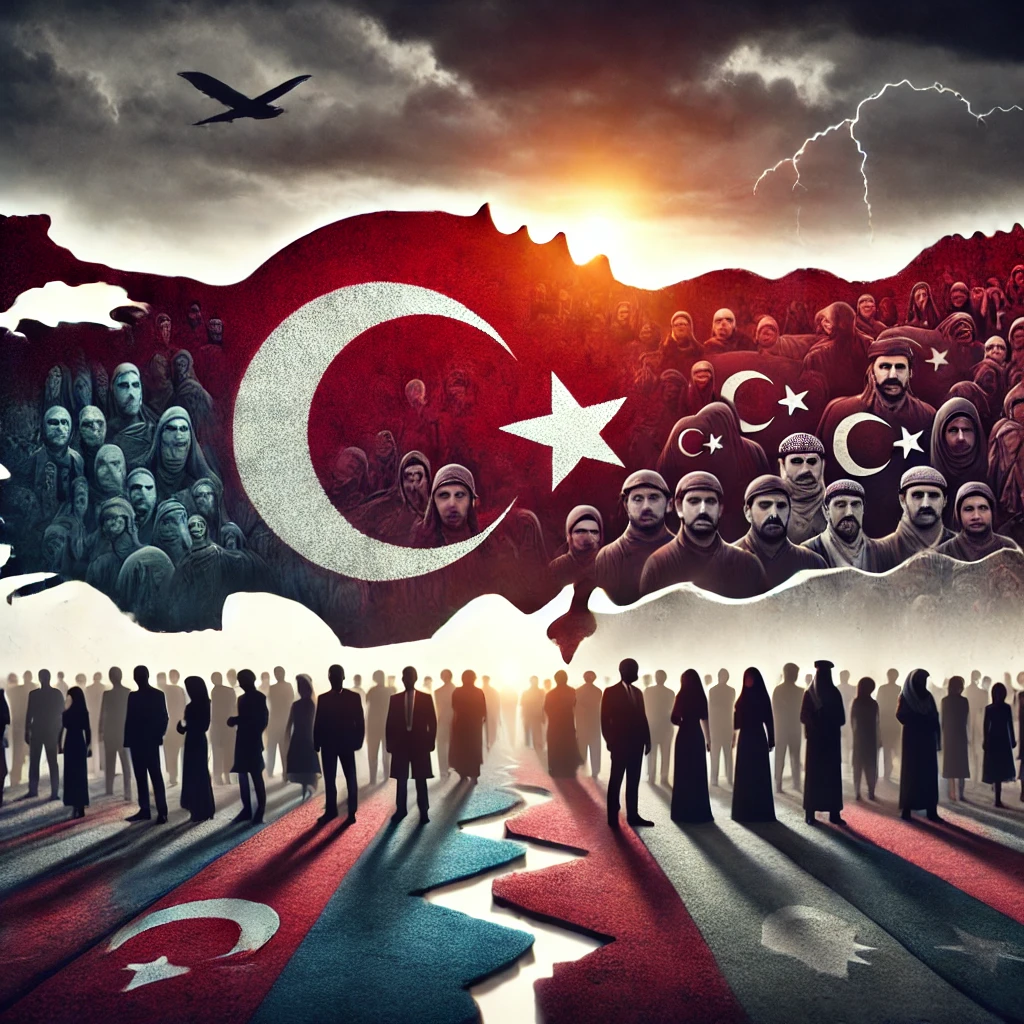Turkey’s shifting demographics and its political implications have become a growing concern both locally and internationally. President Recep Tayyip Erdoğan‘s administration faces accusations of favouring Arab and Islamist groups, at the expense of the native Turkish population. Critics argue that this preferential treatment for certain communities, including citizenship incentives for Arab nationals and government support for pro-AKP factions, is rapidly changing the country’s demographic makeup.
Local reports suggest that the Turkish population in the country has dwindled to around 20%, with many Turks opting to move to Europe. Meanwhile, the proportion of Arabs has surged to 50%, and Kurdish populations have also risen significantly. The government’s policies towards these communities, especially the Arabs, have been linked to the electoral strategy of increasing support from Islamist and conservative bases. Erdoğan’s rhetoric, which has at times labelled secular citizens with derogatory terms such as “sürtük” and “ev zencisi,” has also fuelled tensions.
Germany’s Diplomatic Balancing Act
The recent visit of German Chancellor Olaf Scholz to Turkey highlighted the importance of maintaining diplomatic ties between Europe and Turkey. During his meeting with Erdoğan at Dolmabahçe Palace, the leaders discussed defence cooperation, trade relations, and the complex dynamics around EU-Turkey relations. Scholz stressed the strategic significance of Turkey, noting that while the two nations may not see eye to eye on every issue, dialogue and cooperation remain essential.
Germany has historically shared a close bond with Turkey, given the millions of Turks living in Europe. However, the rising tensions within Turkey and the shift in its internal demographics could pose challenges for Germany’s foreign policy. Scholz’s statements reflect an understanding of Turkey’s growing role in regional politics but also indicate subtle disagreements on topics such as Israel, where the two countries take starkly different stances.
Erdoğan’s Bold Statements on Regional Conflicts
Erdoğan has not shied away from commenting on Middle Eastern conflicts, particularly on the Israel-Palestine issue. During his joint press conference with Scholz, Erdoğan criticised Israel’s actions in Gaza, calling for “all politicians with a conscience to take a stand.” The Turkish president’s bold rhetoric highlights his increasing alignment with Arab and Islamic causes, further cementing his appeal to the rising Arab population within Turkey. His focus on these issues resonates with many of the new citizens of Arab origin who have benefitted from his government’s policies.
Kurdish Demographic Surge and its Implications
In parallel with the influx of Arabs, the Kurdish population in Turkey has also been growing rapidly. Kurdish families tend to have larger families, which has led to their proportion of the population increasing to around 30%. However, critics argue that this rise is less about government favouritism and more a result of socioeconomic factors. The growing Kurdish presence poses a unique challenge for Erdoğan, given the fraught history between the Turkish state and the Kurdish minority, particularly with regards to the PKK.
Germany’s Stance on Immigration and Security
One of the central topics of discussion during Scholz’s visit was immigration and security, particularly regarding the influx of refugees from Syria and the wider Middle East. Erdoğan reaffirmed his commitment to keeping Turkey’s borders open to those fleeing conflicts, stating that Turkey has taken in millions of refugees over the years. Scholz, meanwhile, expressed concerns over criminal elements among refugees and urged Turkey to cooperate with Germany in repatriating those involved in crimes.
Germany’s struggle with its own domestic challenges related to Islamophobia was also addressed. Scholz denounced Islamophobia as a growing issue in Europe but also expressed Germany’s determination to combat radical Islamic ideologies. Both leaders acknowledged the importance of tackling extremism together, despite the differences in their approaches.
Erdoğan’s Enduring Strategy
Erdoğan’s domestic and foreign policies seem to be converging on a clear strategy: bolster support from Turkey’s growing Arab and Islamist base, while ensuring that international partnerships, particularly with Europe, remain intact. His government’s demographic policies, which involve granting citizenship to foreign nationals with a preference for pro-AKP constituencies, seem to be driven by a desire to secure long-term political dominance.






